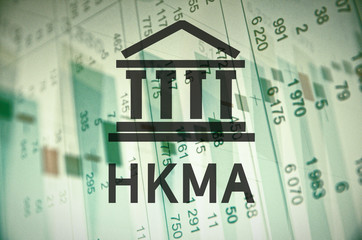The Hong Kong Monetary Authority (HKMA) has officially initiated the second phase of its ambitious e-Hong Kong dollar (e-HKD) pilot program, calling upon industry stakeholders to present potential applications for its central bank digital currency (CBDC). This move marks a significant step in the exploration and potential implementation of a digital version of the Hong Kong dollar, with the aim of enhancing the financial infrastructure and services within the special administrative region.
Launch of Phase Two: Exploring New Horizons
On March 14, the HKMA announced the commencement of this pivotal phase, aiming to delve into the possibilities a digital Hong Kong dollar might unlock, including advancements in programmability, tokenization, and atomic settlements. Additionally, the authority is set to investigate novel use cases that were not addressed in the program’s initial phase, signaling a comprehensive approach to understanding and harnessing the capabilities of digital currencies.
Market participants are encouraged to submit their applications by May 17, with the second phase anticipated to extend until mid-2025. This timeline is designed to afford participants ample opportunity to rigorously test and assess the proposed use cases.
Participation Guidelines and Criteria
The HKMA has outlined specific criteria for application assessment, emphasizing innovation, impact on consumer experience, market readiness, regulatory compliance, and the potential to optimize the e-HKD’s utility in Hong Kong. These guidelines reflect the HKMA’s commitment to fostering a forward-thinking, consumer-centric approach to digital currency implementation.
The Broader Context: Hong Kong’s Fintech 2025 Strategy
The e-HKD project is a cornerstone of Hong Kong’s “Fintech 2025” strategy, unveiled on June 8, 2021. This strategy encompasses the government’s broader ambition to catalyze the adoption of digital finance by 2025, positioning Hong Kong as a leading global fintech hub. Since 2017, the HKMA has been at the forefront of CBDC research, aiming to elevate Hong Kong’s readiness for issuing CBDCs across both wholesale and retail sectors.
Prominent financial institutions, including payment giant Visa, have already participated in the e-HKD pilot. Visa’s involvement, alongside local banks HSBC and Hang Seng Bank, included a pilot test completed on November 1, which explored the tokenization of deposits, effectively minting money on a blockchain ledger backed by a conventional balance sheet.
- Programmability: Examining how smart contracts could automate transactions and enforce contract terms.
- Tokenization: The conversion of assets into digital tokens, facilitating their seamless exchange.
- Atomic Settlements: Ensuring simultaneous settlement of transactions, enhancing security and efficiency.
| Phase | Focus Areas | Objectives |
|---|---|---|
| Phase 1 | Initial exploration | Assess viability and foundational use cases for e-HKD. |
| Phase 2 | Advanced exploration | Dive deeper into programmability, tokenization, atomic settlements, and uncover new use cases. |
The transition to a digital currency ecosystem presents both unprecedented opportunities and challenges. The ability to streamline transactions, improve financial inclusivity, and enhance the security of financial operations stands in contrast to concerns over privacy, cybersecurity, and the digital divide. As such, the HKMA’s comprehensive approach to exploring these facets through its pilot program is both prudent and necessary.
As the HKMA continues to explore the intricacies of deploying a CBDC, the global financial community watches closely. The outcomes of Hong Kong’s e-HKD pilot could provide valuable insights for other nations considering the adoption of digital currencies, potentially shaping the future of global finance.
Hong Kong’s CBDC initiative reflects a broader shift towards digitalization in the financial sector, underscoring the importance of innovation, security, and user-centric design in the development of future financial technologies. As the pilot program progresses, it will be essential to balance these considerations, ensuring that the potential benefits of a digital Hong Kong dollar can be fully realized while mitigating associated risks.











